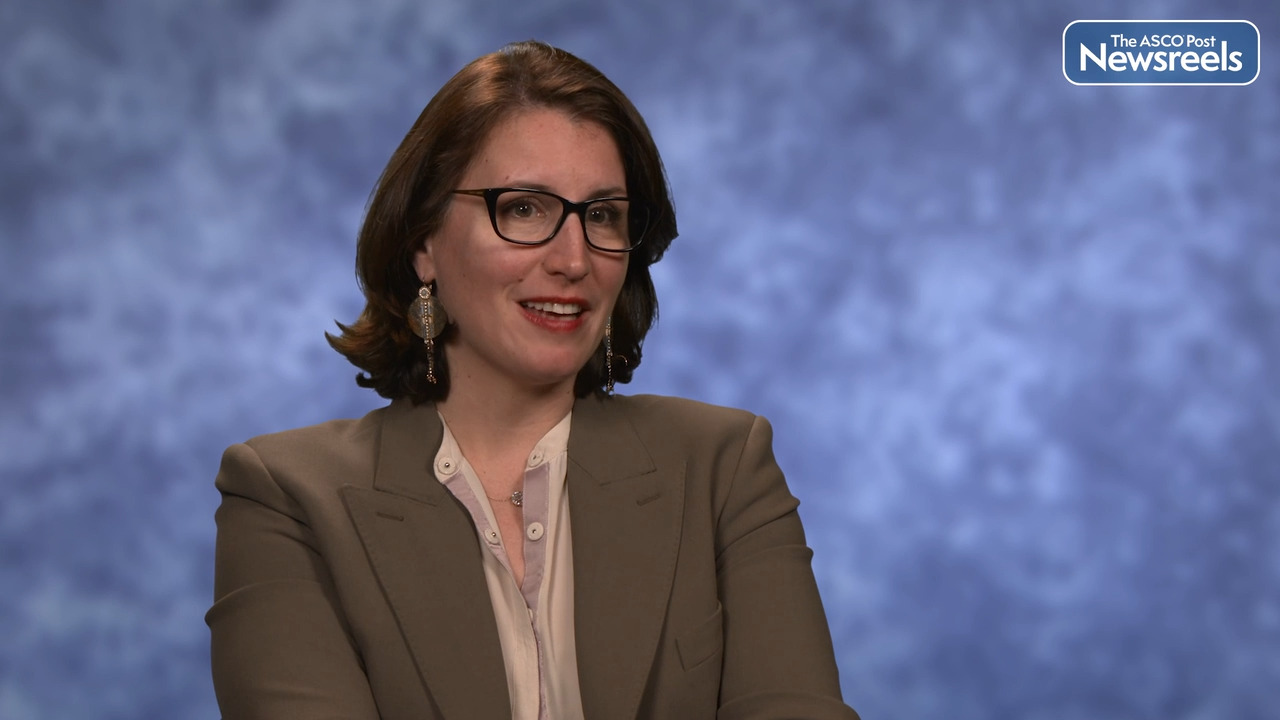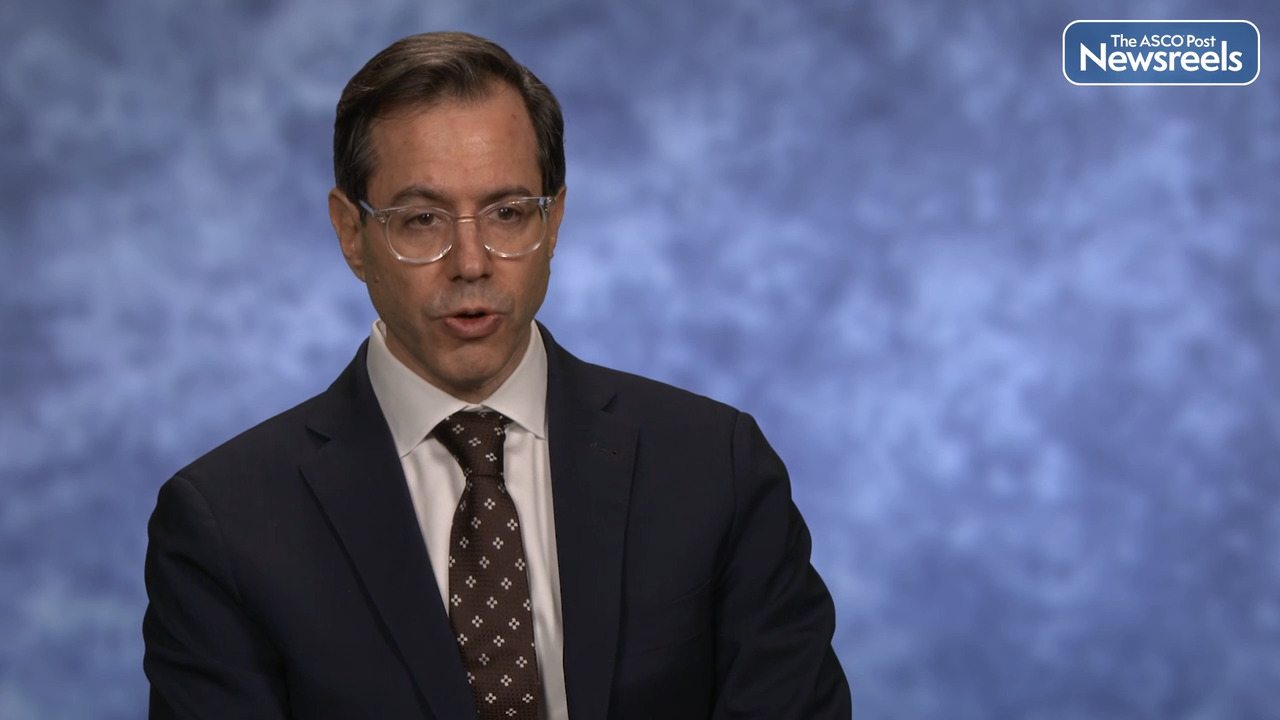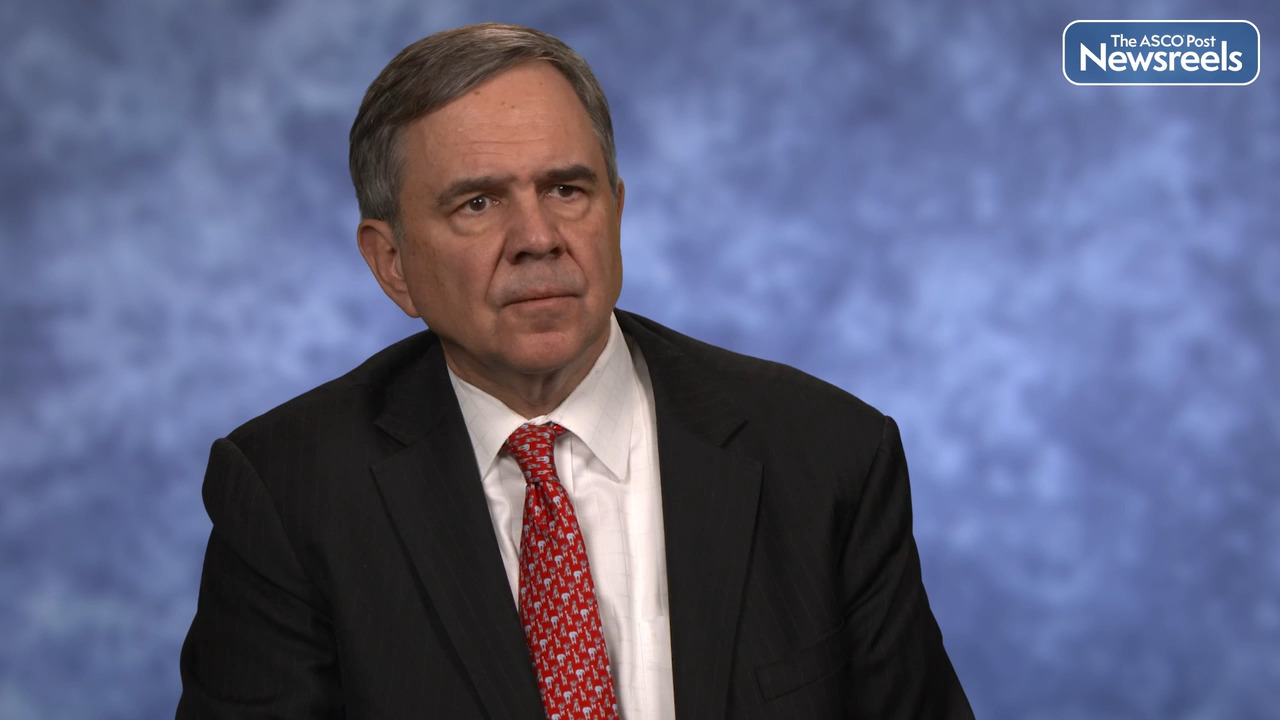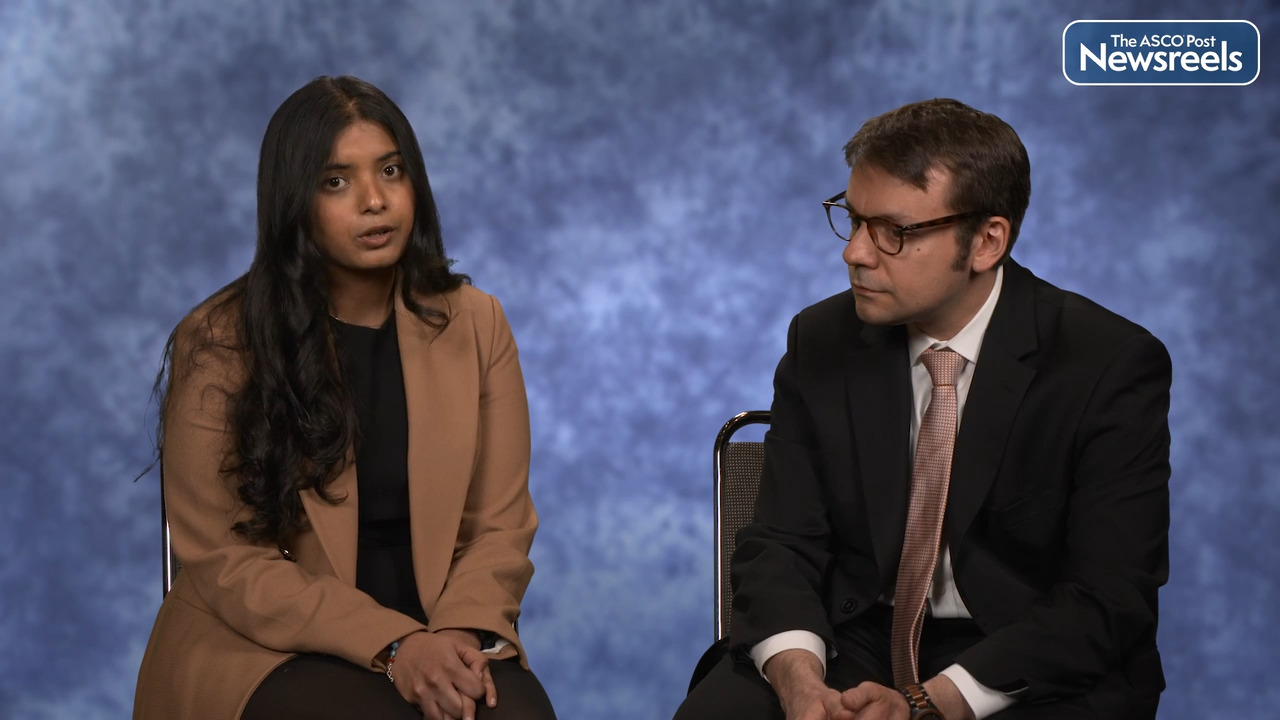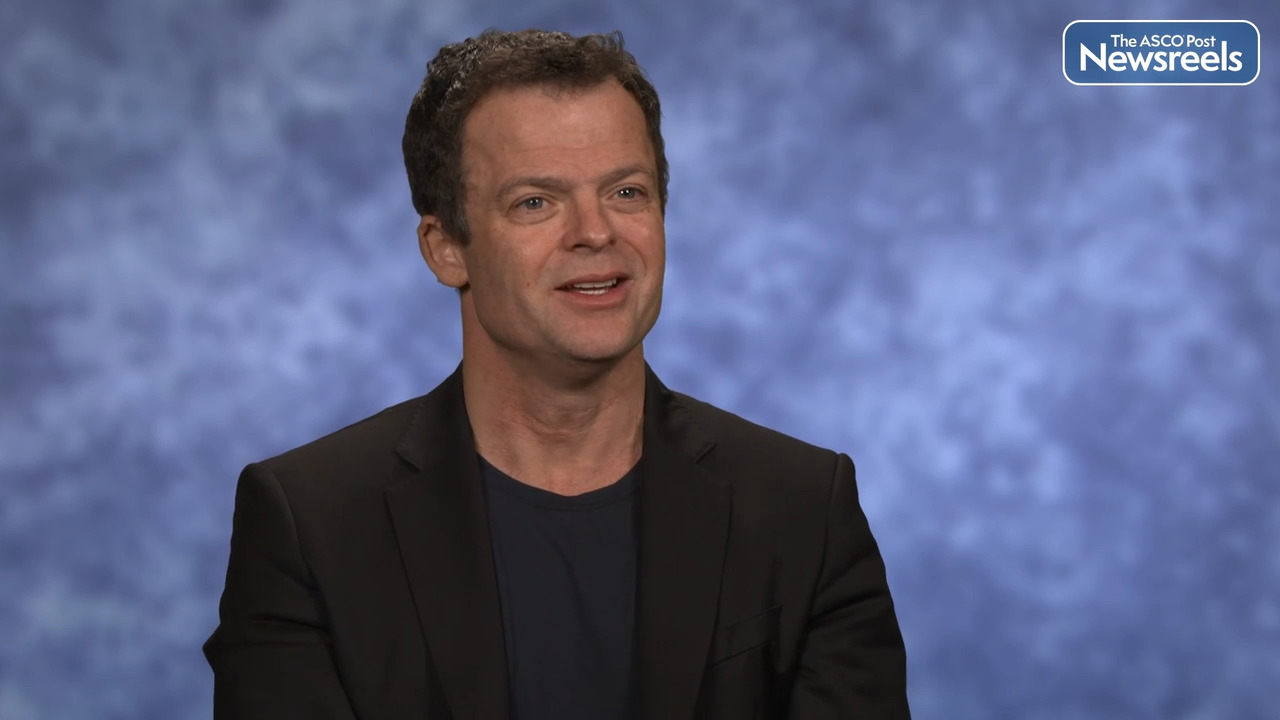Transcript
Disclaimer: This video transcript has not been proofread or edited and may contain errors.
The cohort B of KEYNOTE-057 study investigated pembrolizumab monotherapy in patients with high-risk and non-muscle invasive disease, unresponsive to BCG. The 057 study is a multi-cohort study. The cohort A of the study included the patients with the carcinoma in situ component to with or without papillary disease, unresponsive to BCG who were ineligible for, or declined, radical cystectomy. Results from cohort A presented the clinical complete response rate at 3 months of 40%, with most of the complete responses maintained over time, and resulted in FDA approval of pembrolizumab in the CIS BCG unresponsive population.
The results of cohort B that have been presented at this meeting focused on a bit different patient population, represented by patients without any carcinoma in situ component, and with the only papillary pTa high-grade or any pT1 disease without CIS. This is a very special population for which we do not have any robust standard of care. This is the focus of the cohort B of the study. The design of the study was the same. Pembrolizumab monotherapy until 2 years every 3 weeks or until disease occurrence or progression with high-risk disease. The primary endpoint of this court was 12-month disease-free survival for high-risk disease. Secondary endpoints included the progression-free survival, disease-free survival for any disease occurrence, and the overall survival and quality of life parameters.
The main findings of the KEYNOTE-057 cohort B resulted in 12-month disease-free survival for high-risk disease of almost 43%, which sets among the most robust data already available with this special population. The progression-free survival to any stage progression or stage disease or death was 88%, and progression to muscle-invasive metastatic disease or death was a similar, 88%. There were no new safety signals, no treatment related death. Results, in terms of safety, were consistent with the already available data with pembrolizumab in various disease settings, including cohort A. Quality of life parameters and quality of life scores were maintained over time, were stable over time in patients who continue treatment with or without any recurrence.
So, how can we move forward with this data? Of course, the US FDA requires a randomized study in order to set new standards with newer therapies, and particularly systemic therapies in this special patient population. I think that the data from the cohort B of the study may allow us to re-discuss the need for doing a randomized study in this very difficult to treat population without any robust standard of care intravesical therapy, without any clinical trial option, because of the fact we that we currently lack robust data on standard of care therapies to compare with any newer therapies, intravesically or as a systemic therapy. So I think that the good point of this study is that it will likely generate a new discussion at [inaudible 00:03:21], including regulators, patient advocates, and physicians.
